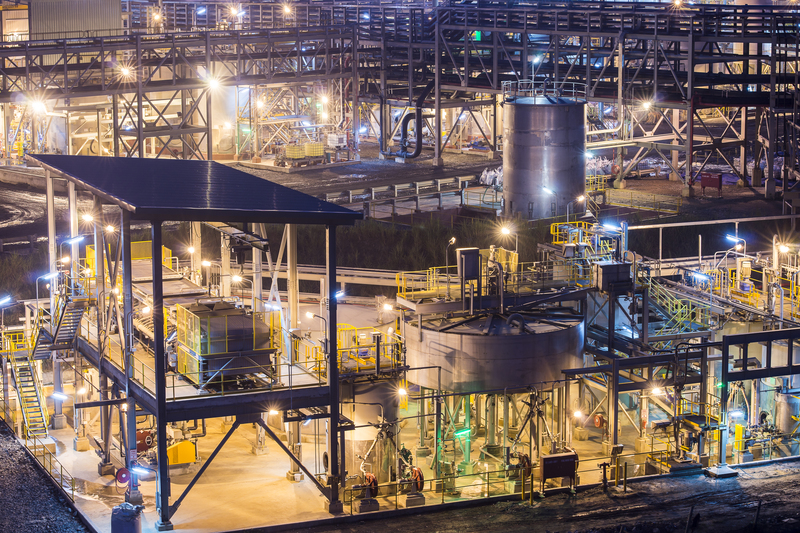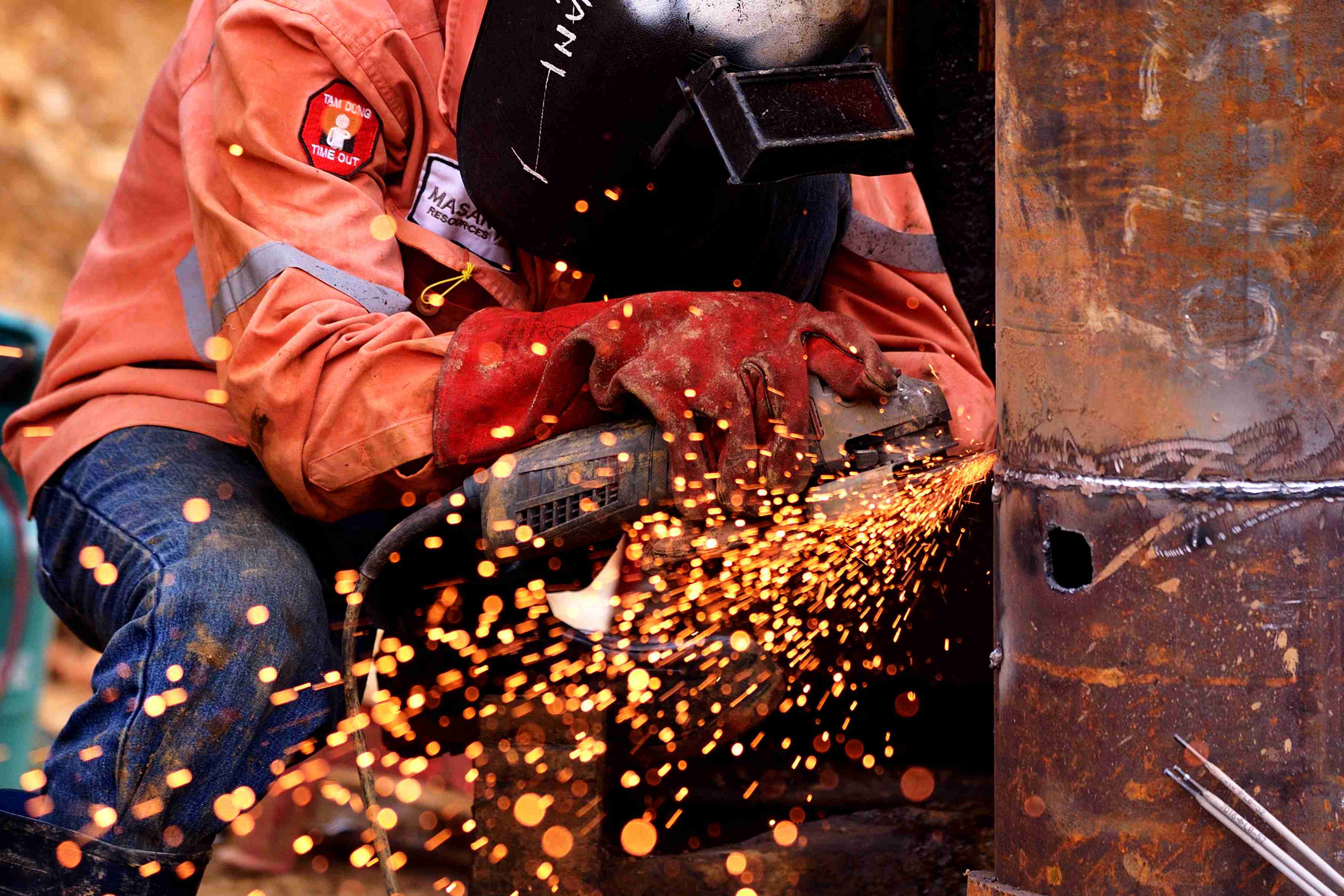Investing in Vietnam has a storied history, with foreign direct investment (FDI) playing a pivotal role in the country's economic development. This article delves into the evolution of FDI in Vietnam, highlighting the reasons behind its popularity, historical milestones, and the current landscape. From the definition of FDI to the factors driving the motivation to invest in Vietnam, we will explore how Vietnam's strategic location, political stability, infrastructure development, and young workforce have made it an attractive destination for global investors.
Definition of FDI
FDI or foreign direct investment is when an investor fr om one nation (the investor's country) purchases an asset in another nation (the investment-attracting country) coupled with the right to administer that asset. What separates FDI from other financial tools is the regulatory component.There are two main types of FDI firms that invest in Vietnam: Firms with 100% foreign capital or a joint venture between foreign and domestic partners. These forms of FDI firms are becoming increasingly popular as the economy develops. FDI firms in Vietnam have a few distinctive features such as the size of investments in Vietnam can be smaller compared to other countries receiving FDI funds. The main investment in Vietnam mostly comes from Singapore, South Korea, Japan and China. Other countries would take up a smaller share of the investment. Lastly, the majority of FDI enterprises are small to medium-sized. These FDI businesses concentrate on sectors like electrical components manufacturing, apparel processing, logistics, etc. Typically, these are fields like construction that demand a large workforce.
History of FDI in Vietnam
The Law on Foreign Investment was formally adopted by the National Assembly in 1987 which is the most significant legal document for foreign investment. The first FDI investment in Vietnam was a joint venture between Hochimex Company of Hong Kong and Ba Ria-Vung Tau Tourism Company. They received the first FDI project license from the Ministry of Foreign Economic Relations on April 7, 1988. Hochimex's initial investment, worthed more than 2 million USD at the time.Since then, in the two years between 1988 and 1990, Vietnam has granted licenses for 213 investment projects totaling roughly 1.8 billion USD in registered capital. The amount of funding that has been transferred, nevertheless, is modest because investors are still awaiting the transition process and assurances from the Vietnamese government to invest in Vietnam.
From 1991, the process of opening up has advanced significantly, and a flood of foreign capital has entered Vietnam. Vietnam's official normalization of ties with the United States took place in 1995, which is a positive indication for the relationship between the two nations.

Reasons why investment in Vietnam are popular
The attractiveness to invest in Vietnam has experienced a significant upsurge in recent times, driven by a confluence of compelling factors that have combined to create a highly favorable environment for foreign investors seeking lucrative Vietnam investment opportunities.Strategic geographical location
The total land area of Vietnam is 331,114 km2. Only around 20% of the nation is flat ground; the majority is hilly. The plateau and the Red River Delta are the primary topographic characteristics in the north, whereas the central highlands, coastal depressions, and the Mekong Delta are the key topography features in the south. A stunning 3,444 km long coastline like Vietnam's makes it the perfect place to grow the marine, trade, and tourist sectors in particular and establish itself as a major shipping hub globally.Vietnam is a significant regional commercial and logistics hub because of its wide coastline and proximity to crucial shipping routes in the South China Sea. The nation's ports and airports have recently undergone modernization, improving connectivity and bringing down transportation costs.
As an Association of Southeast Asian Nations (ASEAN) member, Vietnam has access to a market with more than 420 million customers, according to ASEAN data. Vietnam is therefore a desirable destination for companies looking to access the region's burgeoning middle class and consumer markets.
The second-largest economy in the world, China, is bordered by Vietnam. This provides access to China's vast supply chains and manufacturing networks as well as opportunities for bilateral trade and for China to invest in Vietnam.
Stable political status and constant improvement in infrastructure
The political stability of Vietnam is one of the main elements attracting investors to invest in Vietnam. Because of Vietnam's consistently stable political structure, economic growth policy is consistent. The economic development tendency accelerates the more politically stable a country is. Not every nation in the world possesses this benefit.Vietnam continually develops its facilities, technological infrastructure in compliance with rules, quality is ensured, and notably the amount of scale expansion is also enhanced as a result of its increased economic development strategy. rising throughout the country, not just in major cities.
Especially when compared to other infrastructure projects, the development of road infrastructure has made much more significant strides. Playing a crucial role in regional and international connectivity, the Ministry of Transport has completed the construction of about 1,074 km of road, expressway, bringing the total length of the expressway in operation to 1,163 km. The main national roads were upgraded to technical grade, replacing weakened bridges and synchronous loads, and increasing the proportion of asphalt pavement to 64% as the national highway network expanded to 24,598 km.
Welcoming policy for investor
Vietnam often modifies its investment laws and continues to introduce advantageous measures to entice international investors, including corporate income tax exemptions and reductions, exemptions from import taxes for specific industries, exemptions from rent and land usage, etc.The most recent legal document to replace the Investment Law 2014 and implement new legal policies, including compensation, is the Investment Law 2020, which is wh ere the policy shift is shown to be much better for foreign investors to invest in Vietnam.
Young and eager labour force
With a population of 100 million, Vietnam is the 13th most populous country in the world and has one of the highest yearly growth rates among those nations. The median age of the population is under 25. Vietnamese are well educated and prepared to work in skill-demanding industries like information technology, pharmaceuticals, and financial services at a more competitive cost than other countries in the region. Vietnamese workers are young, highly skilled, and have a good work ethic.

According to the Total Workforce Index research, the cost of labor in Vietnam was estimated to be at USD 275 per month in 2022, which is reasonably inexpensive when compared to other markets. Additionally, Vietnam is one of the markets with the lowest operational costs between $79,280 to $209,087 per month, said TMZ, a business transformation consulting organization in the Asia Pacific region. As a result, investors choosing to invest in Vietnam can benefit from reduced labor and operational expenses as well as initial investment costs.
Despite its numerous obstacles and challenges, quick, complex, unexpected, and unpredictable development, Vietnam is nevertheless viewed as a bright light on the global and regional economic maps. Vietnam continues to preserve macroeconomic stability, control inflation, and generate solid growth outcomes despite challenges in order to attract foreign direct investment. The corporate investment climate also keeps becoming better.
FDI investment in Vietnam in 2023
2023 proves to be a turbulent year with Vietnam being greatly impacted by the hardship experienced by the whole world from the continuous effect of the pandemic to the ongoing tension between Russia and Ukraine. This had led to a multitude of problems from disruption of the supply chain, inflation, to the reduction of global demand. FDI investment in Vietnam also followed the global downward trend, however after 8 months into 2023, figures are slowly picking up, there are promising signs of gradual recovery and renewed interest from investors looking to invest in Vietnam.
According to the data recorded by the General Statistics Office, the total newly registered, adjusted, and contributed capital to purchase shares and buy capital contributions from foreign investors reached about 18.15 billion USD as of August 20, 2023, according to data from the General Statistics Office, up 8.2% over the same time. The expected realized capital of projects involving foreign investment is 13.1 billion USD, an increase of 1.3% over the same time in 2022.
By August 20, 2023, there had been 38,084 active projects across the whole nation, with a total registered capital of 453.26 billion USD. Nearly 287.1 billion USD in cumulative realized capital from foreign investment projects invest in Vietnam is estimated, or 63.3% of the total valid registered investment capital.
Considering the FDI partners that invested in Vietnam, China came in second with over 2.69 billion USD, or 14.8% of the total investment capital, rising 90.8% over the same time. With a total investment of more than 3.83 billion USD, Singapore won the top spot, accounting for more than 21.2% of all investment capital in Vietnam, a decrease of 15.4% from the same time in 2022, with recorded investments totaling over 2.58 billion USD.
Out of the 21 national economic sectors, 18 industries have received investments from international investors. With a total investment capital of close to 13 billion USD, the processing and manufacturing sector leads with close to 67.8% of all registered investment capital and a growth of 14.7% over the same time.
With more than 1.76 billion USD in total investment capital, the real estate sector came in second, making up more than 9.7% of all registered investment capital, but declining 47.2% over the same time period. Professional and scientific and technological activities, which include the finance and banking industries, were rated third and fourth, respectively, with total registered capital of over 1.54 billion USD (nearly 63.7 times) and nearly 800 million USD (up 28.9%). Other industries make up the remainder.
Masan as a Vietnamese corporation has also been benefiting from foreign investment to aid their ambitions to provide a top-of-the-class consumer-retail ecosystem. Typically, the Korean SK Group invested $470 million to acquire a 9.4% share in Masan Group. The SK Group has made other sizable investments in Vietnam. Additionally, a group of investors, including Alibaba Group and Baring Private Equity Asia (BPEA), contributed $400 million to buy a 5.5% share in The CrownX, a division of Masan that combines consumer retail with other businesses including WinCommerce and Masan Consumer Holdings.
Also, Masan Group has also made investments outwards with an investment worth up to 105 million USD for 25% ownership rate at Trust IQ Pte. Ltd. (TS Company) has its head office in Singapore, equivalent to the number of up to 9,388,756 shares. The initiative is a component of Masan's strategy objective to build a consumer-retail-technology ecosystem capable of serving 80% of Vietnamese consumers' basic consumption demands by 2025. Masan will use the investment in TS Company as the catalyst to accelerate the use of artificial intelligence in retail (Retail AI) and consumer behavior (Consumer AI).
The Group has undergone significant change in the area of digital transformation, assisting companies in realizing their goal of serving 100 million Vietnamese people and attracting additional FDI firms to invest in Vietnam.
The International Monetary Fund (IMF) forecasts that Vietnam's economic growth will pick up in the second half of this year, and by the end of the year, there will be many indications of growth. The Organization for Economic Cooperation and Development (OECD) also predicted that the Vietnamese economy will grow by 6.5% this year. According to Standard Chartered Bank, growth will be 7% in the second half of the year. In addition, Vietnam along with two other emerging economies, India and the Philippines are expected to see significant growth till the end of the year. This makes Vietnam one of the most attractive locations for FDI investment.


